Does Creatine Dissolve In Water? 4 Tips To Improve Solubility
Author:
Unlock your full potential by engaging with our experts and community! Have questions about your fitness journey or looking for expert advice on weightlifting techniques? Don’t hesitate — leave a comment below and Camila Parente Santos will provide a personalized answer and insights to help you reach your goals.
Torokhtiy is reader-supported. Some links are affiliate links, and we may earn a commission at no extra cost to you. See our disclosure page for details.
If you’re considering taking creatine, you may be wondering, “Does creatine dissolve in water?”
Compared to many other supplements, creatine dissolves exceptionally well in water. While we’ll be covering a few tips to help it mix better, you generally shouldn’t have any issues when it comes to mixing creatine into water.
Does creatine dissolve in water? There shouldn’t be any issues mixing creatine into water. Especially if you’re using a micronized form of creatine in warm water, it should mix very well. If you’re concerned about solubility, consider using creatine HCl, which is highly soluble, although monohydrate is still more recommended.
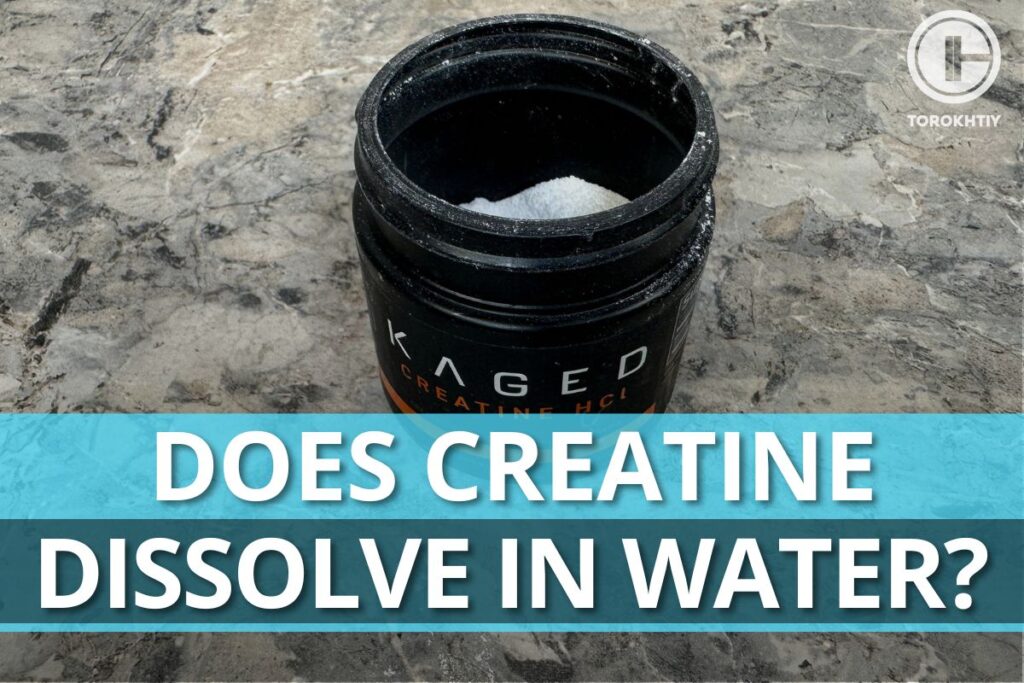
Does Creatine Dissolve in Water?
So, is creatine water soluble, or is creatine hydrophobic? Typically, a single serving of creatine stirred into a glass of water will mix into a glass of water fairly well.
If you don’t drink it right away, some creatine may separate and remain at the bottom of the glass, but it can be stirred right back in. Creatine typically won’t clump up in water the same way some other powdered supplements like protein do.
As we’ll be covering below, if you want creatine to mix even better than usual there are a few extra things you can do.
4 Tips to improve the solubility of creatine
While standard creatine monohydrate will mix pretty well in water, if creatine not dissolving in water perfectly bothers you, try out these tips next time you have your daily dose!
1. Use micronized creatine monohydrate
Micronization is a technique used in pharmaceuticals to increase the surface area of a substance, effectively improving how well it dissolves. This essentially involves breaking down creatine powder into even smaller molecules. Using micronized creatine should lead to a smoother mix in plain water.
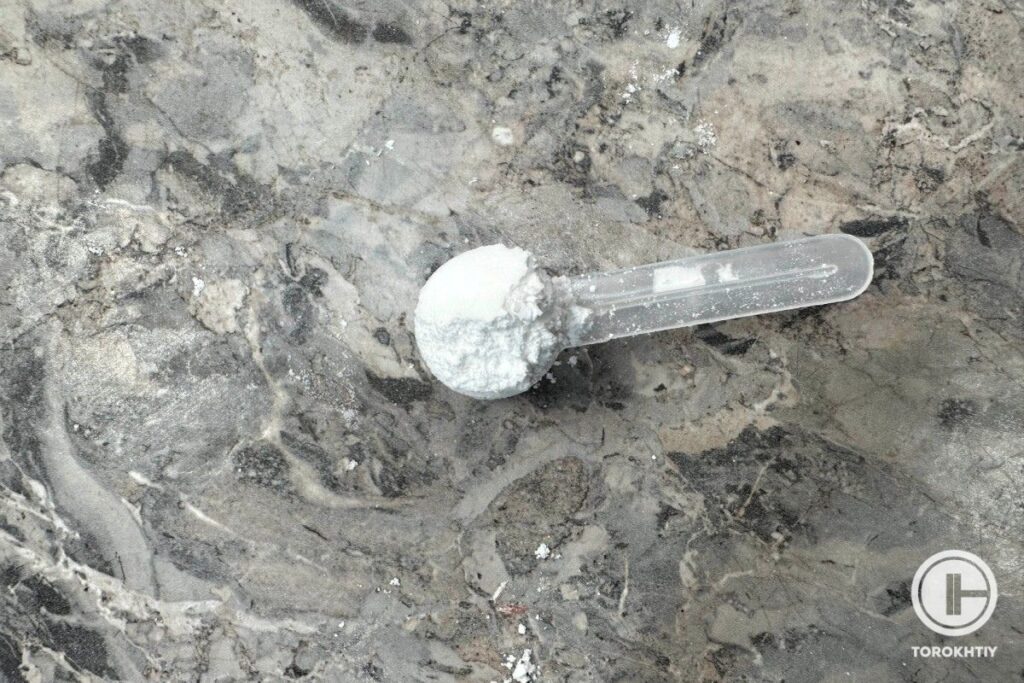
2. Add creatine to warm water, tea, or coffee
If you find creatine doesn’t mix well enough in cold water, try using warm water, or a hot beverage like coffee or tea. While creatine mixes better in warm water when compared to cold, you’ll probably get the smoothest mix in very hot liquid.
3. Add creatine to an acidic drink like fruit juice
If you’re specifically concerned about how well your body is absorbing creatine, you may want to consider mixing it with fruit juice. This is because creatine uptake is improved with higher insulin levels, which can be achieved by drinking something sugary like fruit juice. Just keep in mind you’ll want to drink the juice immediately after mixing to make sure the creatine stays dissolved.
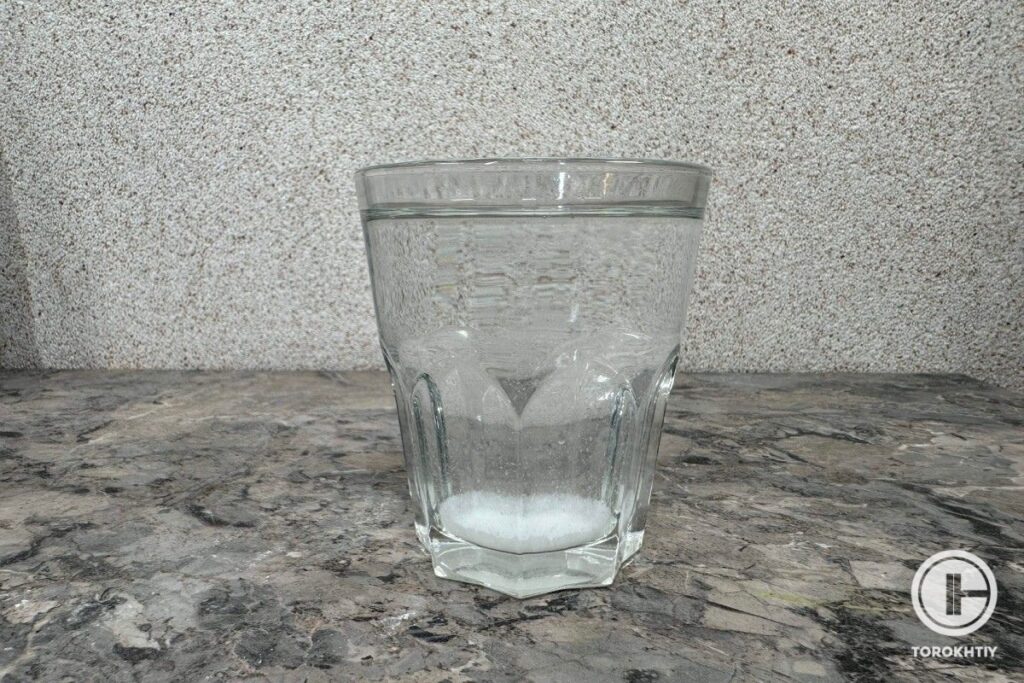
4. Consider Creatine HCl
Finally, if you’re truly concerned about the solubility of creatine, you may want to consider creatine HCl over a more standard monohydrate. Creatine Hydrochloride (HCl) is more soluble than creatine. While this is creatine that dissolves well, this doesn’t mean it’s any more bioavailable. So, you’ll still need to take a standard 3-5g dose every day to saturate your muscles, despite what some products may claim.
creatine dosage calculator
Loading Phase:
Maintenance Phase:
Also, note that creatine HCl is significantly more expensive than most monohydrates. It also does not have as much research to support its safety and efficacy. So, monohydrate will still typically be a better choice for most people.
Best Creatine Monohydrate
Transparent Labs Creatine HMB
- Form: Powder
- Type: Monohydrate
- Other Ingredients: HMB, Vitamin D
- Price per Serving (for 5 g): ~$1.35
- Servings per Container (for 5 g): 30 or 60 servings
- Company Founded: 2015
- Recommended by Athletes: Hafþór Júlíus Björnsson, Pat Li, PAULINA
If you’re looking for a high-quality creatine monohydrate supplement, we recommend checking out Transparent Labs’ Creatine HMB.
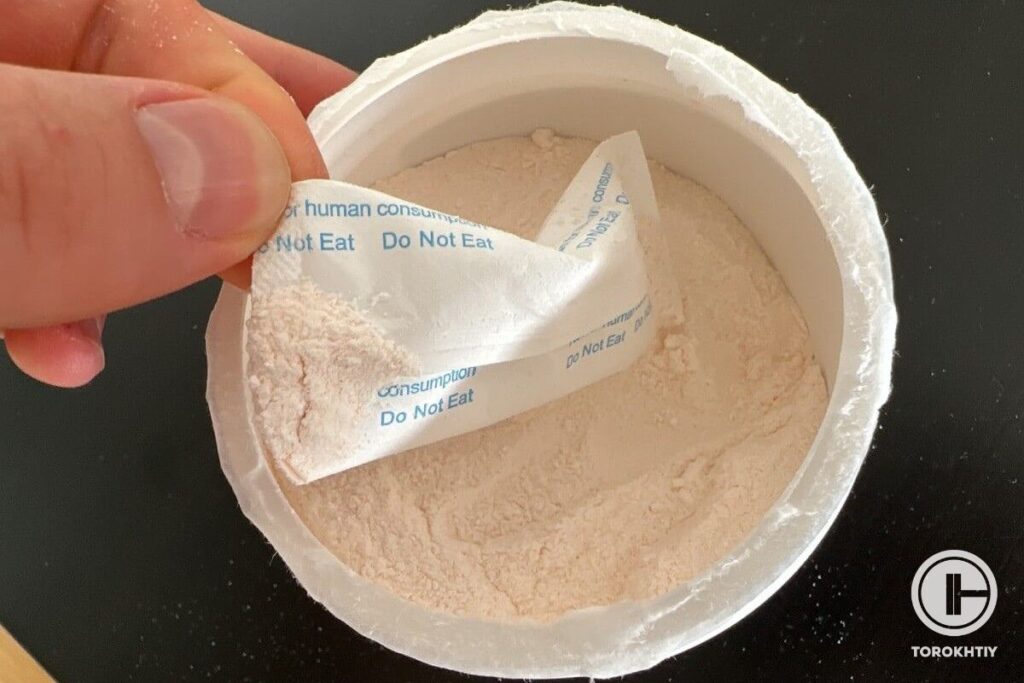
Each serving of this supplement has 5g of creatine monohydrate, which will be an optimal daily dose for most people. You’ll also be getting the additional ingredients HMB and Vitamin D. HMB may have some benefits to strength and performance specifically for beginners, although it doesn’t appear to be too effective for more experienced lifters. Vitamin D, on the other hand, has plenty of benefits for muscle growth and overall health, especially if you’re deficient.
This product is made with no artificial ingredients whatsoever and comes in a whopping 14 different flavors. Just keep in mind this is a fairly expensive product considering its additional ingredients and flavor variety.
Best Creatine HCl
Kaged Creatine HCl
- Serving Size: 1 scoop (1003 mg)
- Servings per Container: about 75
- Creatine HCL per serving: 750 mg
- Recommended By Athletes: Davey Fisher, Tawna Mccoy
Now, we want to make it clear once again that Creatine Monohydrate will almost always be a better option than HCl. However, if you do want to try a more soluble form of creatine, you can consider Kaged’s Creatine HCl.
First, note that although Kaged recommends a serving size of 750mg, you’ll need to take at least 3g (or 4 scoops of Kaged) a day to get an adequate dose. This means you’ll only be getting about 19 servings of Kaged’s Creatine per package.
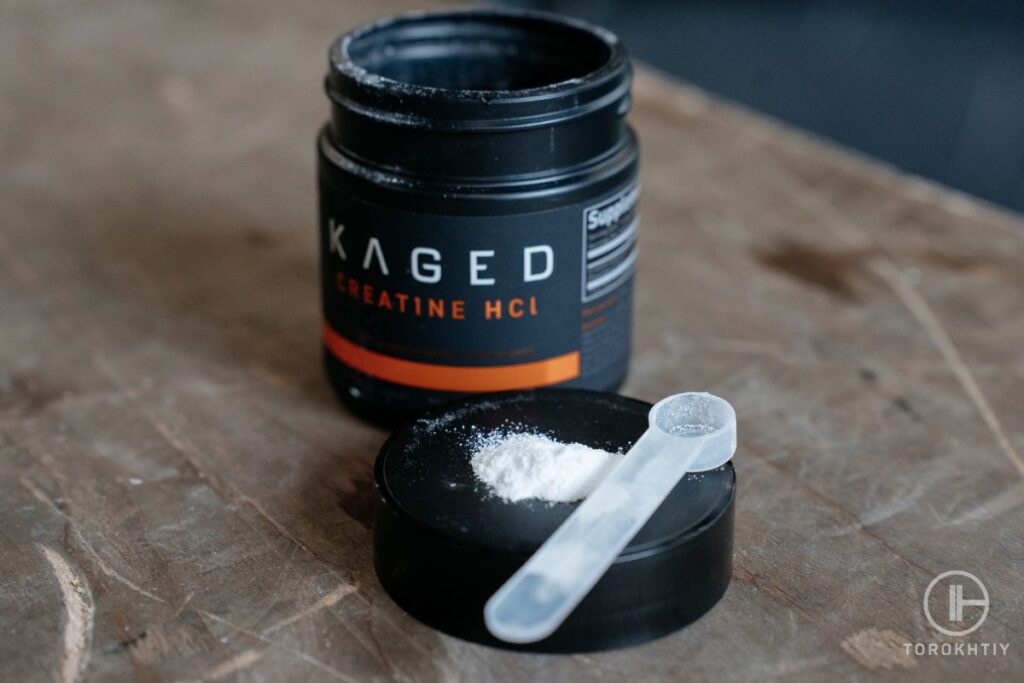
This product comes in 3 flavors, which is fairly solid for a creatine product. However, keep in mind that it is made with the artificial ingredient sucralose in case this is something you’re interested in. Finally, as mentioned, HCl is typically more expensive than creatine monohydrate, but if budget is not a concern to you, this may still be a good option for you.
FAQ
Is Creatine Supposed to Dissolve in Water?
Yes, creatine is most commonly taken by mixing it in water. Especially if you’re mixing micronized creatine into warm water, it should dissolve very well. If you find your creatine doesn’t mix well in water, try stirring it into coffee or tea for a smoother texture.
How Much Water Does It Take To Dissolve 3G of Creatine?
3g of creatine should mix well into 6-8oz of water. Although there shouldn’t be any issues mixing it into less water, the creatine likely won’t dissolve as effectively.
Can I Dry Scoop Creatine?
We don’t recommend dry scooping creatine, as you may end up choking, coughing, or inhaling creatine. You’ll likely need to use some water to wash it down anyway. Because creatine mixes so well into plain water, there’s no reason to dry scoop creatine.
Conclusion
If you’re concerned about the solubility of creatine, rest assured that this supplement dissolves very well in water. Especially if you use micronized creatine, and warm to hot liquid, it should dissolve to the point where you won’t even notice it in your beverage.
Our recommendation for a high-quality monohydrate supplement is Transparent Labs Creatine HMB. However, if you’re interested in a more soluble form of creatine, consider Kaged’s Creatine HCl – just be sure you’re still taking at least 3g every day.
Do you regularly take creatine, or are you looking to try it for the first time? Do you have any more tips for helping creatine dissolve better? Let us know your thoughts in the comments below!
Also read:
- Does Creatine Have Calories
- Does Creatine Give You Energy
- Does Creatine Have Caffeine
- Does Creatine Help With Recovery
- Does Creatine Have an Effect on Testosterone
- Transparent Labs Creatine Hmb Review
- Kaged Ferodrox Review
- Bulk Supplements Creatine Review
References:
- Xi Han, “Particle engineering via surface modification during micronization for pharmaceutical applications,” Dissertations. 349. (2013).
- Richard B. Kreider, “Creatine: State of the Science at the Millennium,” Performance Nutrition Buyer’s Guide (2000).
- Richard B. Kreider, “Bioavailability, Efficacy, Safety, and Regulatory Status of Creatine and Related Compounds: A Critical Review” Nutrients, 14(5), 1035 (2022).
- Chad M. Kerksick, et. al, “ISSN exercise & sports nutrition review update: research & recommendations” Journal of the International Society of Sports Nutrition Volume 15, – Issue 1 Article 38 (2018).
- The Nutrition Source, “Vitamin D”, Harvard T.H. Chan School of Public Health, https://www.hsph.harvard.edu/nutritionsource/vitamin-d/ (Accessed Jan. 21, 2024)
Why Trust Us?
With over 20 years in Olympic weightlifting, strength training, nutrition coaching, and general fitness our team does its best to provide the audience with ultimate support and meet the needs and requirements of advanced athletes and professional lifters, as well as people who strive to open new opportunities and develop their physical capabilities with us.
By trusting the recommendations of our certified experts in coaching, nutrition, and sports training programming, as well as scientific consultants, and physiotherapists, we provide you with thorough, well-considered, and scientifically proven content. All the information given in the articles concerning workout programming, separate exercises, and athletic performance, in general, is based on verified data.
The product testing process is described in more detail here.
Camila has worked as a Nutritionist for 7 years. In addition to being a nutritionist, she is an amateur weightlifting athlete for 2 years. Camila has experience at Flamengo’s football base and in a food supplement company and currently provides services at a clinic. At the moment she is coursing a postgraduate study in Sports Nutrition.



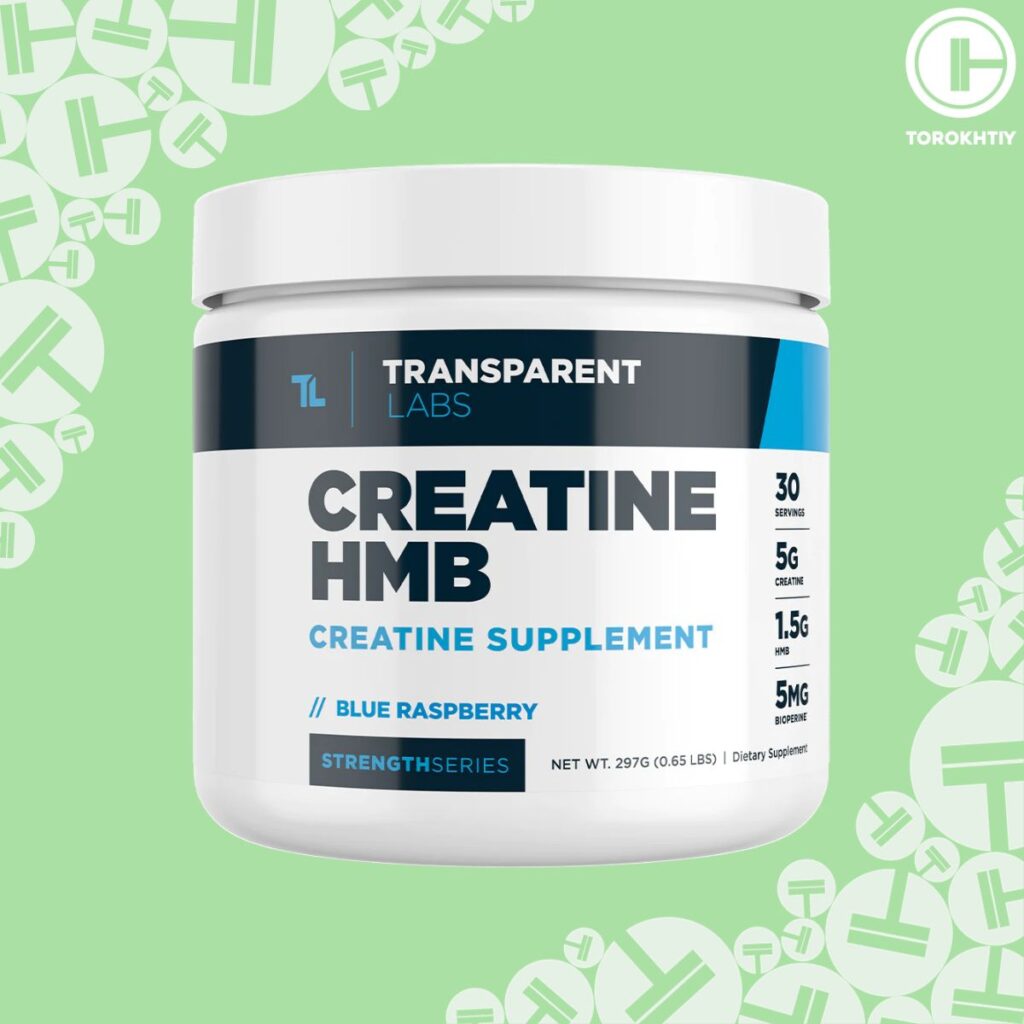
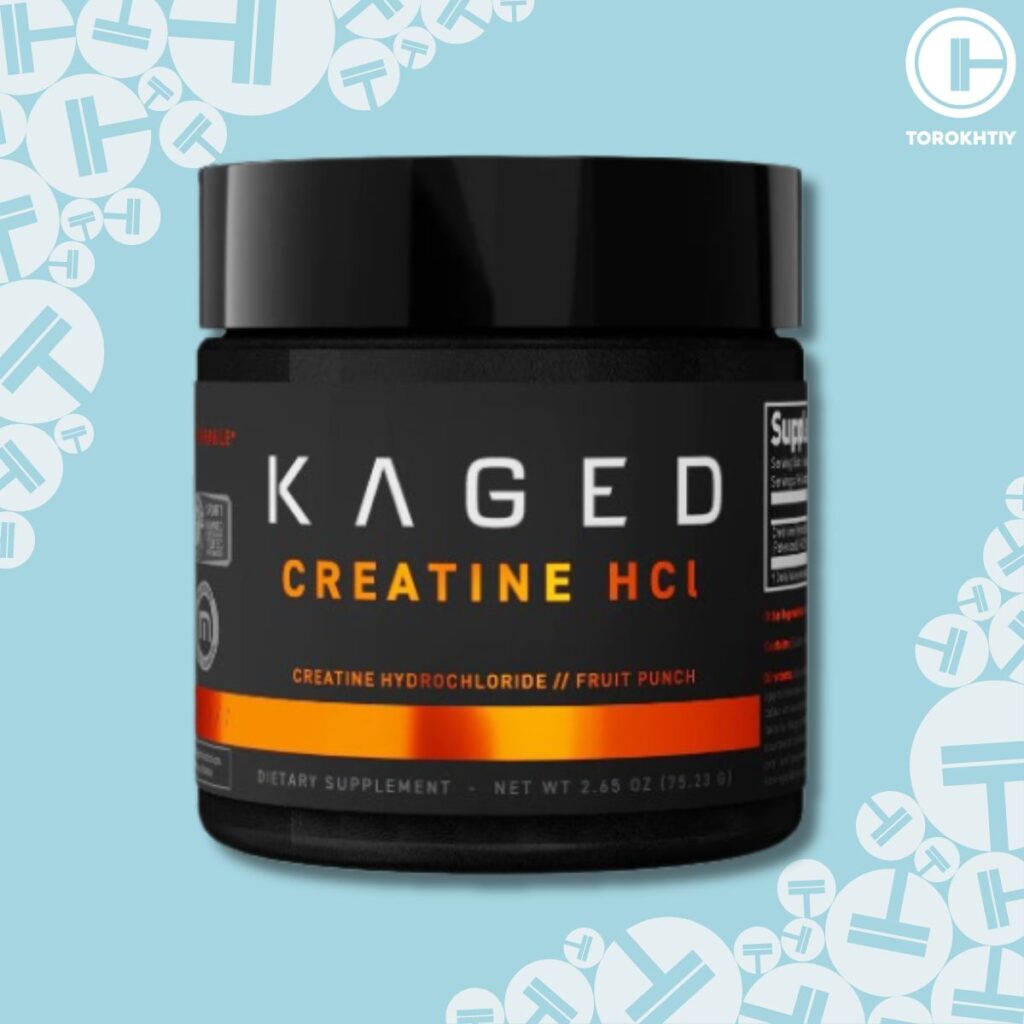
Still have questions after reading our article? Unlock your full potential by engaging with our experts and community! Don’t hesitate — leave a comment below and Camila Parente Santos will provide a personalized answer and insights to help you reach your goals.